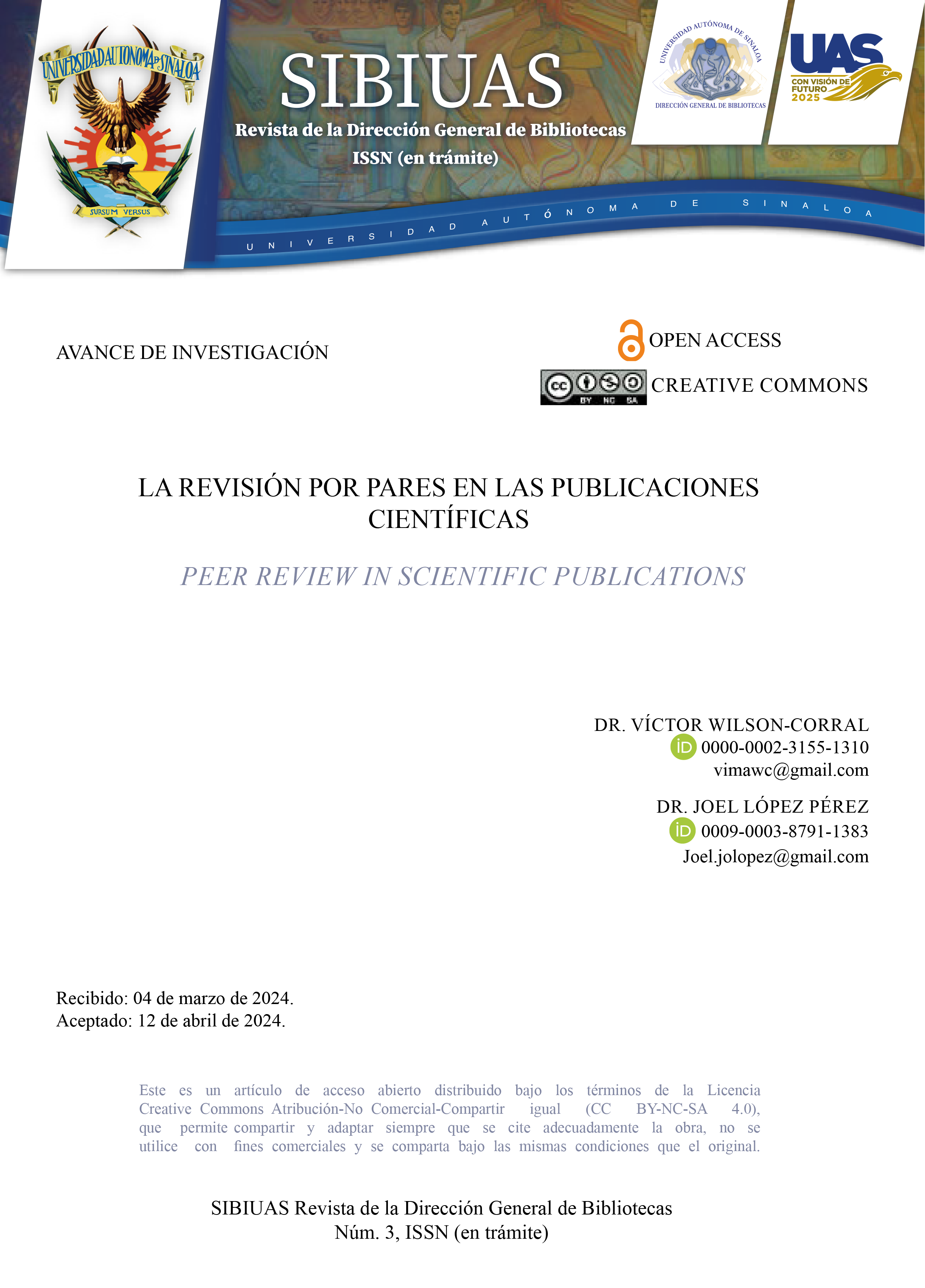Peer review in scientific publications
Keywords:
Knowledge generation, scientific activity, peer reviewAbstract
Scientific activity generates empirical data through the development of experimental work. Interpreting the empirical data obtained from research is currently the most accepted approach to understanding any aspect of nature. However, scientific activity is not immune to errors. The increasing emphasis on rapid research dissemination often results in a lack of quality peer review. In 2023 alone, more than 10,000 research papers were retracted, setting an annual record. While peer review cannot salvage poor research, it often serves to correct, enhance, and fortify statistical analysis of data, thereby significantly improving presentation and clarity. Scientists sometimes overlook finer details in the peer review process, as exemplified in the case presented in this brief essay.
Downloads
References
Bunge, M. A. (2017). El planteamiento científico. Revista Cubana de Salud Pública, 43(3), 1-29.
Clarivate. (2022). Journal Citation Report 2022. Clarivate, USA. 131 pp.
Dukart, J., Weis, S., Genon, S., and Eickhoff, S. B. (2021). Towards increasing the clinical applicability of machine learning biomarkers in psychiatry. Nature Human Behaviour, 5, 433-435.
Hopf, H., Krief, A., Mehta, G., and Matlin, S. A. (2019). Fake science and the knowledge crisis: ignorance can be fatal. Royal Society Open Science, 6, 190161.
Just, M. A., Cherkassky, V. L., and Brent, D. (2021). Reply to: Towards increasing the clinical applicability of machine learning biomarkers in psychiatry. Nature Human Behaviour, 5(4), 433-435.
Just, M. A., Pan, L., Cherkassky, V. L., Dana, L., McMakin, Cha, C., Nock, M. K., and Brent, D. (2023). Retraction Note: Machine learning of neural representations of suicide and emotion concepts identifies suicidal youth. Nature Human Behaviour, 7, 824.
Just, M. A., Pan, L., Cherkassky, V. L., McMakin, D. L., Cha, C., Nock, M. K., and Brent, D. (2017). Machine learning of neural representations of suicide and emotion concepts identifies suicidal youth. Nature Human Behaviour 1(911–919).
Kelly, J., Sadeghieh, T., and Adeli, K. (2014). Peer review in scientific publications: Benefits, critiques, & a survival guide. EJIFCC 25, 227-243.
Kharasch, E. D., Avram, M. J., Clark, J. D., Davidson, A. J., Houle, T. T., Levy, J. H., London, M. J., Sessler, D. I., and Vutskits, L. (2020). Peer review matters: research quality and the public trust. Anesthesiology, 134(1), 1-6.
Steer, P. J., and Ernst, S. (2021). Peer review - Why, when and how. International Journal of Cardiology Congenital Heart Disease, 2,100083.
Van Noorden, R. (2023). More than 10,000 research papers were retracted in 2023 a new record. Nature 624, 479-481.
Verstynen, T., and Kording, K. P. (2023). Overfitting to ‘predict’ suicidal ideation. Nature Human Behaviour, 7, 680–681.

Downloads
Published
Issue
Section
Categories
License
Copyright (c) 2024 SIBIUAS Revista de la Dirección General de Bibliotecas

This work is licensed under a Creative Commons Attribution-NoDerivatives 4.0 International License.




